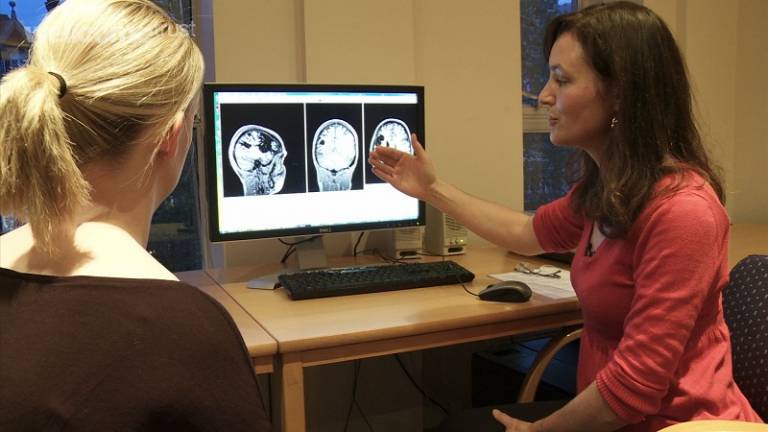Aphasia recovery
- Aphasia is a language disorder which can occur after brain injury, such as a stroke.
- People with aphasia can have difficulty with speaking, understanding, reading and writing.
- Having aphasia can be traumatic and life-changing for patients and relatives.
What patients and relatives want to know
- Patients want to know if they will recover, and how long it will take.
- Currently, it is very difficult to answer this.
- The PLORAS project aims to solve this problem.
Project aims
Aim 1
To tell future stroke survivors:
- How much language they are likely to re-gain.
- How long this is likely to take.
We hope to give future patients a prediction about their recovery.
Each prediction shows how much confidence we have in it.
For example:
- We are more confident if 90% of patients with the same stroke area recovered in a particular time-frame.
- We are less confident if only 50% of patients recovered in a particular time-frame.
Aim 2
We want to explain:
- Why some patients respond better to treatment than others.
- Why some patients recover more quickly than others.
We hope this information can guide future aphasia therapy.
Find out more...
PLORAS aims to create a clinical tool for patients and clinicians which will provide individualised predictions about the most likely course of recovery from aphasia after stroke, based on the patient's MRI brain image.
These predictions are based on the exact location, size and shape of the lesion at a very detailed level. This has become possible due to advances in neuroimaging and computational techniques. In practical terms, future patients with aphasia can be shown the rate and level of improvement that other individuals with the same area of brain damage experienced over time.
Critically, each prediction indicates the level of confidence that we have in it. For example, we can be confident when we know that more than 90% of patients with the same lesion site recovered within a particular time frame, but we are less confident if only 50% of patients recovered, because this indicates that the effect of the lesion varies across patients.
When we are confident in our predictions, we hope to be able to relay encouraging news. E.g. '80% of people with the same stroke site as you recovered their language within 5 years'.
For other lesion sites, with less consistent outcomes, we are working on ways to improve our knowledge of these lesions and interact with clinicians and patients in ways that are individualised and optimised for the patient and their family.
 Aphasia recovery
Aphasia recovery
 Close
Close

